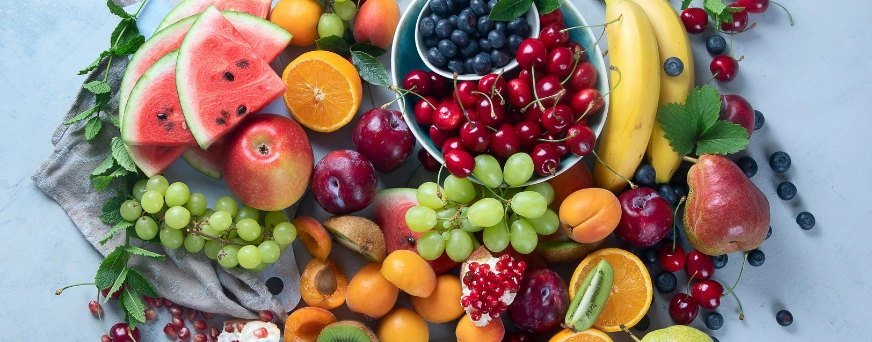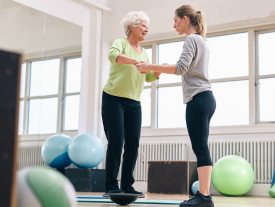Light & Healthy: The Best Summer Foods For Seniors To Stay Cool And Energized
Summer brings longer days, warmer weather, and a chance to enjoy fresh, flavorful meals that nourish the body without weighing it down. Seasonal ingredients offer more than great taste—they support hydration, digestion, and energy throughout the hottest months. Choosing the right summer food for seniors in the United States can help them stay active, feel more comfortable, and enjoy light, satisfying, and nutritious meals. Explore the best options for feeling cool, healthy, and energized all season long.
The Nutritional Benefits Of Summer Foods
Seasonal fruits and vegetables offer a natural boost to health. Summer produce is rich in water content, helping older adults stay hydrated in the heat. It’s also packed with essential nutrients that support heart health, digestion, and immune function—all vital for aging bodies.
Many summer foods are low in calories but high in fiber, antioxidants, and vitamins. These qualities make them ideal for light meals and snacks that provide lasting energy without heaviness. Eating what is in season also means better flavor and freshness, encouraging healthier eating habits.
Key nutrients found in summer produce include:
● Vitamin C: Supports immune function and improves iron absorption
● Potassium: Helps regulate fluid levels and maintain healthy blood pressure
● Folate: Promotes cell repair and brain function
● Antioxidants: Protect cells and reduce inflammation
● Fiber: Aids digestion and supports stable blood sugar
Focusing on fresh, whole foods during the summer sets the stage for better health and more enjoyable meals.
Easy And Delicious Summer Recipes For Seniors

Nutritious meals don’t have to be complicated. Simple recipes that require little or no cooking are ideal during the warmer months. Seniors can enjoy fresh flavors, stay cool, and meet their nutritional needs without spending hours in the kitchen. These recipes prioritize hydration, ease of preparation, and ingredients that support healthy aging.
Refreshing Salads
Salads are a great way to combine fruits, vegetables, proteins, and healthy fats in one bowl. Use vibrant summer produce and tailor ingredients to taste and dietary needs.
● Base ideas: Mixed greens, spinach, arugula, or romaine
● Add-ins: Cherry tomatoes, cucumbers, bell peppers, berries, or avocado
● Protein sources: Grilled chicken, hard-boiled eggs, chickpeas, or tuna
● Dressings: Light vinaigrettes made with olive oil, lemon juice, or balsamic vinegar
Cool And Hydrating Beverages
AStaying hydrated is vital for seniors, especially in the heat. Homemade beverages can be both refreshing and nutrient-rich without added sugars.
● Iced teas: Brew green, herbal, or black tea, then chill and serve over ice
● Fruit-infused waters: Add lemon, cucumber, mint, or berries to cold water
● Homemade lemonade: Mix fresh lemon juice with cold water and a natural sweetener
Light And Tasty Snacks
Healthy snacks between meals provide energy and nutrients without being too filling.
● Yogurt parfaits: Layer plain yogurt with granola and fresh fruit
● Fruit skewers: Alternate pieces of melon, grapes, and strawberries on sticks
● Nuts and seeds: Choose unsalted almonds, walnuts, or sunflower seeds for a crunchy snack
● Veggie sticks with dip: Pair carrot or celery sticks with hummus or Greek yogurt dip
These easy recipes help seniors stay nourished and satisfied while embracing seasonal flavors.
Tips For Safe Food Handling And Storage In Warm Weather
Hot weather increases the risk of foodborne illness, especially when meals involve fresh produce, cold dishes, or outdoor events. Seniors are more susceptible to food poisoning, so practicing proper food handling is essential for staying healthy during the summer.
Follow these food safety guidelines to reduce risk:
● Keep cold foods at or below 40°F: Use coolers or insulated bags with ice packs when shopping or picnicking
● Keep hot foods at or above 140°F: Use warming trays or insulated containers for transport and serving
● Refrigerate leftovers promptly: Store within two hours (one hour if temperatures are above 90°F)
● Avoid cross-contamination: Use separate cutting boards for raw meats and fresh fruits or vegetables
● Check expiration dates: Discard any food with questionable packaging or odor
● Wash produce thoroughly: Rinse all fruits and vegetables under running water, even if peeled
These practices help prevent illness so you can safely enjoy seasonal meals all summer.
Eating Out: Making Healthy Choices
Dining out can be a fun way to enjoy summer, but it often comes with oversized portions and high-sodium options. Seniors can still enjoy restaurants while making choices that support energy,hydration, and overall wellness.
Use these tips to stay on track:
● Review the menu ahead of time: Look for grilled, baked, or steamed dishes instead of fried or creamy options
● Ask about substitutions: Request vegetables or a side salad in place of fries or heavy sides
● Watch portion sizes: Consider splitting an entrée or saving half for later
● Limit sugary beverages: Choose water, unsweetened tea, or milk over sodas and sweet drinks
● Request dressings and sauces on the side: This gives you control over how much you use
● Choose restaurants with senior menus: These often feature smaller, more balanced meals
These simple choices can help you stay nourished and energized while enjoying the social side of summer.
Community Resources And Support For Seniors

Access to healthy summer food doesn’t have to be limited by income or mobility. Many communities across the U.S. offer programs that make nutritious meals and fresh produce more accessible to seniors.
Explore these helpful resources:
● Senior centers: Many provide affordable or free summer meal programs, cooking classes, and social dining events
● Meals on Wheels: Delivers fresh, balanced meals to homebound seniors
● Farmers’ market nutrition programs: Some states offer coupons or benefits to help seniors buy local produce
● SNAP and food assistance programs: Help cover grocery costs and often include nutrition education
● Local nonprofits and food banks: Offer seasonal produce boxes, meal kits, and community gardens
These programs support healthy eating and foster connection and independence during summer.
Conclusion
Summer food delivers the hydration, nutrients, and lightness that help seniors feel energized and well. From fresh fruits to easy recipes, the right choices can support health and enjoyment. This summer, make a point to explore new meals, try local produce, and take advantage of community resources to make every summer bite count.























